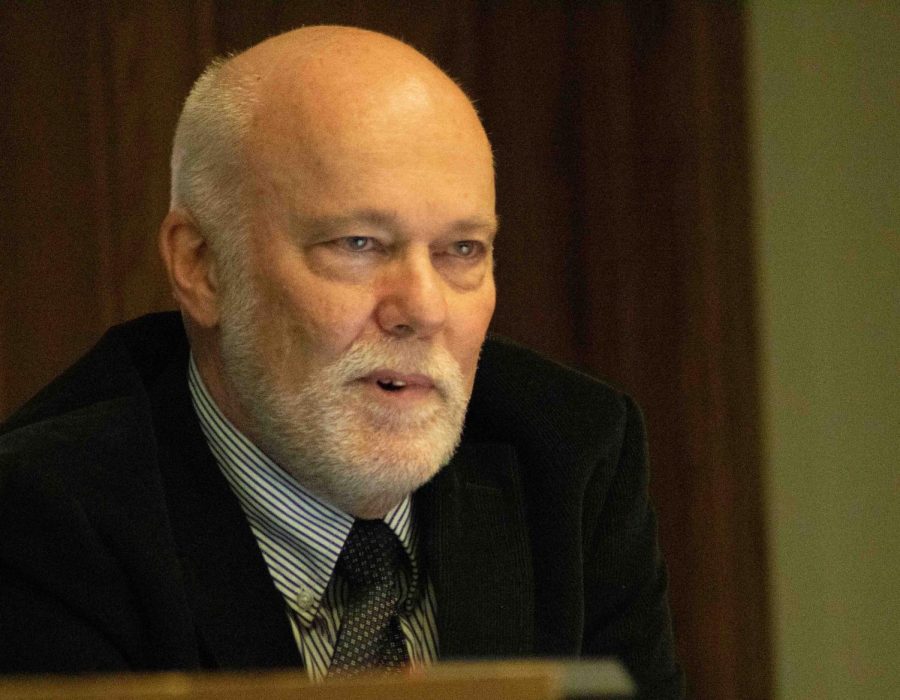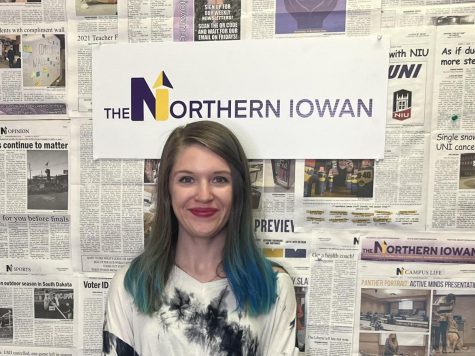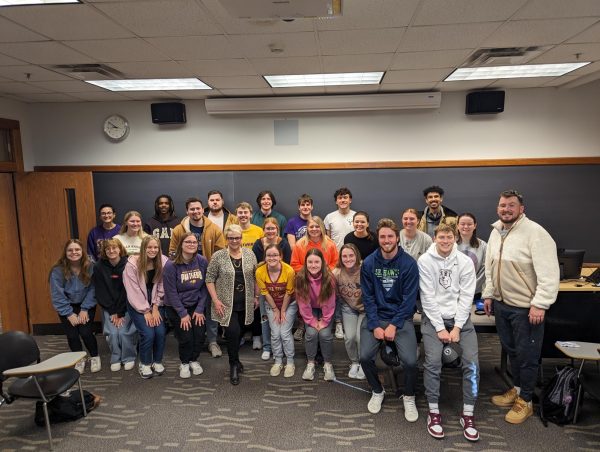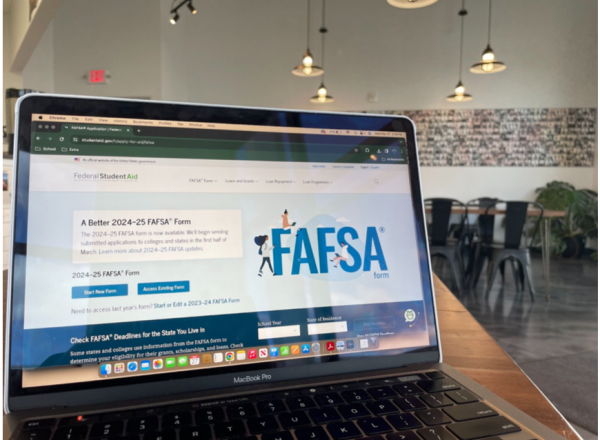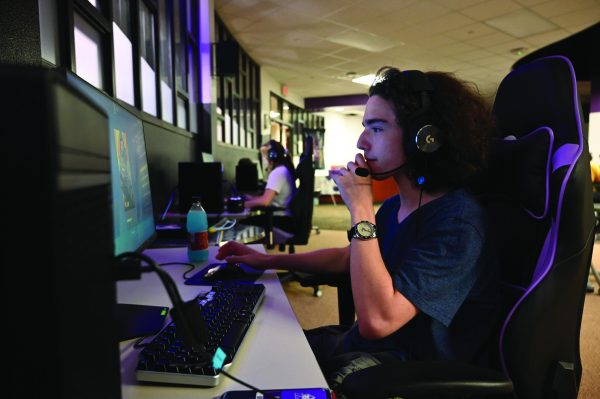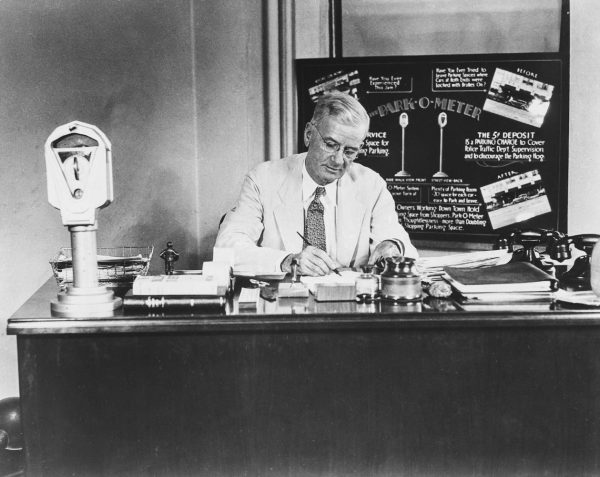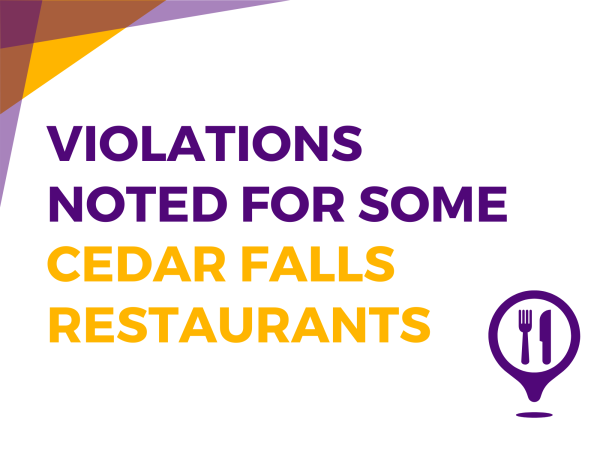Cold War soldier’s story
Dr. Kenneth Atkinson gave his lecture “Transporting the Nation’s Secrets Across the Iron Curtain: A Cold War Soldier’s Story” on Oct. 16.
Oct 21, 2019
On Wednesday Oct. 16, UNI’s Phi Alpha Theta History Lecture Series presented its third lecture this year, Dr. Kenneth Atkinson’s “Transporting the Nation’s Secrets Across the Iron Curtain: A Cold War Soldier’s Story.”
Atkinson, a professor in the Department of Philosophy and Religion at UNI, discussed the time he spent serving in the Army in Berlin during the Cold War. He served from 1984-1987 in the Specialist Fourth Class under the Berlin Brigade.
Atkinson was recently honored by the Checkpoint Charlie Foundation, a registered Berlin non-profit whose purpose is to “foster German-American relations with special consideration for the role that the U.S. played in Berlin between the years of 1945 and 1994,” according to the organization’s website.
The foundation is named for the best-known crossing point between East Berlin and West Berlin during the Cold War, which was named Checkpoint C, or Checkpoint Charlie.
Through the Checkpoint Charlie Foundation, Atkinson, along with 11 other veterans, took a tour around Berlin to see how it has changed since they served. Atkinson and his fellow veterans went all over Berlin, including the Tempelhof Airport. Today, the massive building is used for office space by over 100 companies, but Atkinson and his group were able to visit the tunnels underneath the airport, which were used as a bomb shelter during Nazi times. Atkinson showed pictures of concrete walls decorated with nursery rhymes and quotes from children’s books. They were commissioned in an effort to keep children calm during bombing, but may have given the opposite effect.
“I thought the images were very eerie. I don’t think they would have helped much during that time,” Atkinson said.
Atkinson then talked about his memories and experiences during the Cold War.
“Those were simpler times. Soldiers wore their uniforms, so you were able to tell who the good guys were,” he said.
Atksinson enlisted in the Army after college and wanted to become a private. Many tried to persuade him to take up the role of an officer, but he refused.
“I didn’t want to be gone for six years, and that’s how long officers were gone for. I also wanted to serve outside of the United States, but I was told if I would be an officer I would be serving in the States. I was shocked when they told me I was heading to Berlin,” he said.
During his time in Berlin, Atkinson stayed in the Andrews Barracks, which used to be the main military academy of the German Empire before it was closed in 1920 after the Treaty of Versailles. Atkinson showed pictures of art and statues at the Barracks. Much of the art had to be taken down after WWII because it contained many Nazi symbols and propaganda.
Atkinson then shared a video on the details of the Berlin Wall itself, to give the audience a more realistic vision of the harsh conditions to which the people of Berlin were subjected. The wall itself stretched 110 miles and tore the city of Berlin in two. The wall’s security was strict, and the soldiers were stricter. At night, “no man’s land”— the area between East Berlin and West Berlin— was lit up like a Christmas tree in order for soldiers to clearly see if someone was trying to escape over.
Although it was practically impossible to cross, many people tried and 136 lost their lives.
Atkinson’s role in the war was as a document courier, carrying the country’s secrets to and from locations. Each night, several days a week, he would take information to the airport for it to be sent off. If he was transporting very sensitive material, he would personally take it on a train from Berlin to East Germany.
“I would take the train at night, and many times I remember being the only person on the train,” Atkinson said.
Atkinson stated how having his college degree opened up everything for him, and it was a major factor of how he got his role in the military. He even taught some classes back at the base.
“So I encourage people to get their degree. You never know when it will come in handy,” he said.
Atkinson finished the lecture with a thank you and a final statement:
“It was a very exciting job, but not as exciting as being a UNI professor.”


